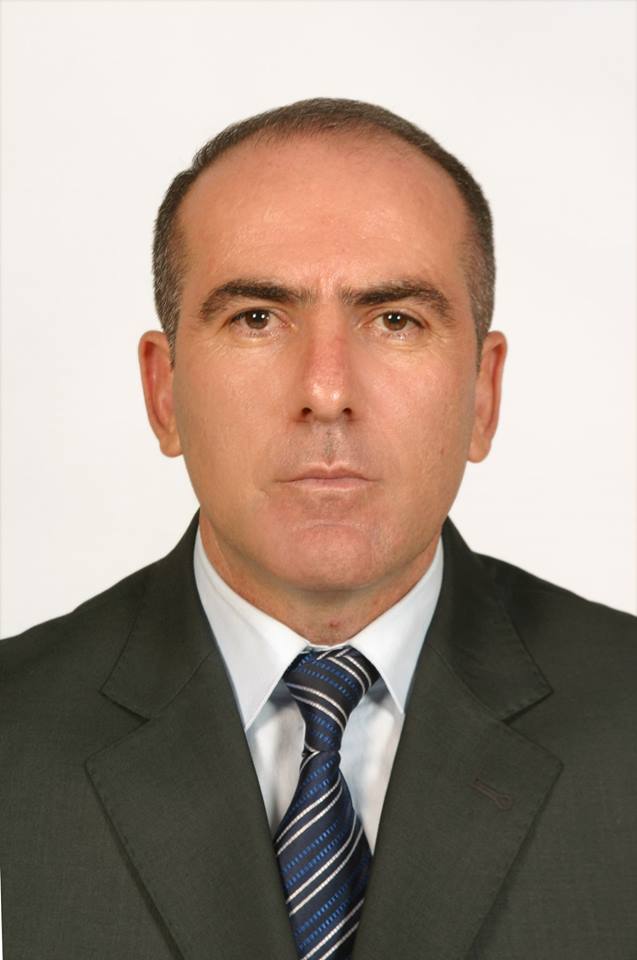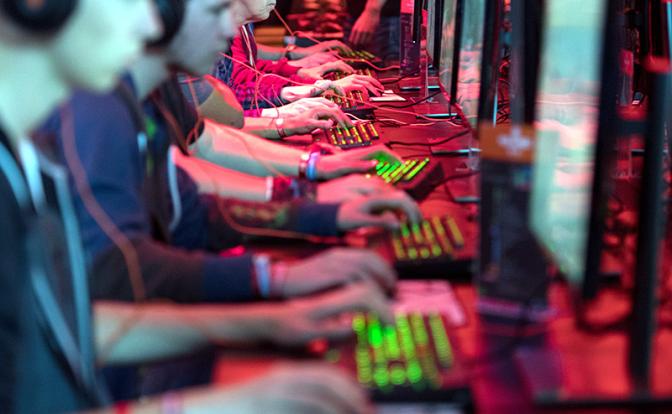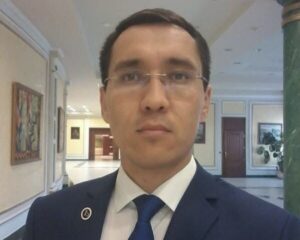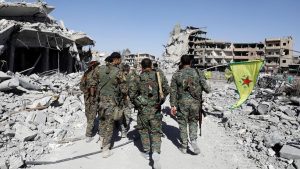Soft Power in Foreign Policy and Soft Power Management of Azerbaijan
In recent years, the role of the concept of soft power in discussions on foreign issues has been growing.Articles about this concept have already been published in a number of foreign newspapers and popular magazines.Today, the concept of “soft power” occupies an important place in the politics of the world’s leading countries.The views of scholars and scientists on the assessment of “soft power” have led to an increase in the importance of this approach in the foreign policy of countries.
The literature on “soft power” has grown significantly over the past 10 years. It is especially important to have a deep understanding of soft power. Today, the world’s major countries want to influence others from their own cultures, keep them under that influence, and achieve their goals by both interfering and controlling their cultures.These goals are divided into three parts: political, military and geopolitical.If in the past, countries tried to conquer the world at the expense of their political or economic power, today they try to do so through culture.Joseph Nye’s notion of “soft power” is the clearest example of this.
According to Joseph Nye, who introduced the idea of ”soft power” to the literature, military power has been left in the background due to the multifaceted structure of the global system, the growing influence of international organizations and the media.He defined the soft power as “If I can get you what I want, then I don’t have to force you to do what I want.”It is clear from this that soft power can force the interests of one state to be considered by other states. Non-governmental organizations, culture and cultural values, political leaders of the region and so on are included to the soft power elements. Non-violent methods are main in this approach, and the important thing is to make them pleasant and attractive.
By “soft power”, Joseph Nye intends to provide states with geopolitical positions not by military and economic force, but by their cultures, political ideals and programs.According to him, “hard power” means coercion, while “soft power” means voluntary participation.However, even in “voluntary participation”, the last issue is the acceptance of the cultural principles of the state. Nye writes in the work named “Soft Power: The Means to Success in World Politics”: “Power is like air, it is like it.Although it is talked about and everyone depends on it, not everyone understands it unequivocally.As warned in advance about the weather, the political leaders of the countries make predictions about the balance of power and pay special attention to changes in the balance” .
In his book “Soft Power”, J. Nye has defined this concept like that:”Achieving the desired result in an attractive way without applying military or economic pressure on another country” is a “soft power” method.Joseph Nye noted that: “It is as easy as love to have and appreciate power.”These words are more true of the “soft power” he brought to literature.He defined this concept as “the ability to obtain what one wants by arousing interest, not by coercion or money.”Achieving foreign policy goals in this way means that countries have “soft power” .
For many years, analysts had been thinking of formulas to measure strength in international relations.In 1997, a senior of Central Intelligence Agency official, Ray Clay, published a formula he used to calculate power.Ray Clay’s responsibility was to inform political leaders in the United States about the balance of power between the United States and the Soviet Union during the Cold War.His formula is as follows:
Power = (population + territory + economy + military) x (strategy + will)
After performing the necessary figures in this formula and calculating, he saw that the United States was weaker than the USSR in terms of power.In fact, the indicators showed that this weakness is twice as much.However, this did not last long, the USSR soon collapsed and the United States again became the most powerful country in the world .
Nye divides the country’s values into three parts in order to have “soft power”:
1) the culture of this country ;
2) political values ;
3) foreign policy.
According to him, if the values and interests of any country are useful for other countries, and most importantly, pleasant and attractive, the country is considered successful in the world.A country with this success can easily influence others.In terms of political values, Joseph Nye generally distinguishes between democratic and authoritarian political systems, but gives greater priority to democratic values.It is clear from his words that political systems based on democratic values have a stronger potential for attractiveness than authoritarian political systems.It is not difficult for political systems with such values to influence other societies around the world.
In other words, if a country is democratic, always striving to work with international organizations and defending peace and human rights in its foreign policy, then this country always has an attractive role for others.Unlike authoritarian political systems, democratic political systems can pursue their interests more easily, over a longer period of time, and in a more stable manner .
The concept of “soft power” began to be developed in the late 80s of last century.When Joseph Nye laid the foundations of this concept in the scientific literature at that time, it was not known whether it would be used to such an extent in the political field . This concept directly includes soft power and the tools needed to implement it.Factors related to a country’s “soft power” policy usually include its language, culture, science and education, diplomatic prestige, and especially its political values.The tools needed to implement this policy include various governmental and non-governmental institutions, organizations, academia, educational centers, as well as the media.This is the most important thing that distinguishes soft power from.
The distinctive features between hard and soft power can be easily identified.Although these two approaches are an important form of political governance by states in the international arena, they differ greatly in their nature and functions.While hard power prefers coercion in a relationship, soft power, on the other hand, prefers to do it in attractive ways .
In international relations, countries sometimes see that they have more power to achieve what they want than others.Therefore, their use of this power can have different purposes. But no matter how it is used, in one sense the purpose is the same: “to change the attitude of the country in the desired direction.”Today, it is still a matter of discussion how the strong will achieve what it wants.There are different methods, because there is no one way.The two approaches included in these methods, hard power (military and economic) and soft power, are currently used in the foreign policies of countries .
Behaviors
Basic tools
Public policy
Military power
To force
To deceive
To protect
Threat
Power
Compulsory diplomacy
War
Union
Economic power
To encourage
To force
Money
Investment
Help
Bribery
Soft Power
To attract
Values
Culture
Politics
Public diplomacy
Bilateral and multilateral diplomacy
Table 1. Types of power according to Nye
One of the most important differences between hard and soft power is time. With hard power, you can get results quickly.With soft power, on the contrary, it is almost impossible to achieve results in a short time.The results of soft power manifest themselves after a long time.Comparing these two approaches in politics, it can be said that soft power is more dangerous.Because it is very likely that the measures to be taken for the implementation of hard power will be predictable.However, this cannot be accepted for soft power.It is also possible to adjust the hard power both in terms of quantity and quality.For soft power, this idea does not sound convincing .
It is already clear that there is a “soft power” in the policies of the major powers that want to rule the world.Of course, when we say such states, the first thing that comes to mind is the United States, Russia and China, which is considered the “whale of the East.”
These states are 3 out of 5 permanent members of the UN Security Council.From time immemorial, there has been a secret or open struggle between them for world domination.Although Russia and the United States were forcibly allied during World War II, they returned to previous relations immediately after the end of the war.Thus, their struggle for world domination began again.
In fact, the winner of this struggle is known – the West, America.Because at that time, the USSR, and later its legal successor, Russia, could not maintain the effects of the “soft power” policy on the former post-Soviet countries.
Today, Russia is considered a country which relies on its military power.Economically and technologically, Russia is not considered a threat to neighboring countries.Because its sphere of influence is very weak.Although Russia does not want to accept this, there is a difference between the two countries in this regard .
Recently, Western analysts, assessing the foreign policy of the two countries, emphasize the existence of the concept of “soft power” in the politics of these countries.We are talking about China and Russia.It should be noted that experts in China and Russia have also begun to prefer this concept.
There is an article called “What China and Russia don’t get about Soft Power? “, regarding Nye’s Russia and China’s “soft power” policy.This article was published in 2013 in Foreign Policy magazine.In this article, Nye condemns Russia and China for using “soft power” policies in their own national interests.According to him, the country’s values should be promoted not in the interests, but in accordance with the harmony of society .
Nye thinks China needs to balance its “hard” and “soft” powers because its cultural tradition allows it.Chinese Ch. Desyun agrees with these views to some extent.He likens Chinese culture to an altruistic person.That is, a person should put his family interests above personal interests, and the interests of the state above both.It is this tradition that has defined the core of society in China.In any case, it is welcomed that both the United States and China have this view .
“The Soft Power 30” ranking, compiled by the Portland media company, reflects the countries in the world that have more successfully implemented the “soft power” policy.According to this ranking, the first three places were the United States, England and Germany.The top ten included Canada, France, Australia, Japan, Switzerland, Sweden and the Netherlands.It ranked 27th out of 30 countries, including Russia.Russia is one of the new countries included in this list .
Now let’s look at how “soft power” is implemented in Azerbaijan.It was not easy for Azerbaijan, which regained its independence after the collapse of the Soviet Union, was militarily and economically weak and under pressure from Armenia, to use a “soft power” approach in politics and attract the attention of the world community in this way, but it is real .
After gaining independence in 1991, our republic began to use the “soft power” factor in its public policy.At the same time, Azerbaijan was gradually strengthening its military forces in the country in order to fight the occupying Armenia.Azerbaijan, which began to take its place after gaining independence, tried to fully use the existing opportunities of the “soft power”.
National leader Heydar Aliyev came to power again in 1993.It was after this that, as a result of substantial efforts, serious work was launched to promote the newly created state in the world.
Heydar Aliyev held many political meetings in this direction, and with the efficient use of the country’s rich energy resources, he was able to restore the national economy in a short time.All these were important steps towards the recognition of Azerbaijan as a new state and greatly accelerated this process.Heydar Aliyev skillfully used the “soft power” approach in politics, and therefore, at that time, Azerbaijan has become a counterpart to the world’s countries.
Heydar Aliyev left us an important legacy in this direction.Thus, today, President Ilham Aliyev has successfully continued this path and raised the statehood to a new and higher level.As the President has always said: “Our goal is to turn Azerbaijan into a developed country.”This idea is considered a long-term development strategy of Azerbaijan, and all measures taken are planned to implement this strategy.The policy pursued under the leadership of Ilham Aliyev is constantly increasing the economic potential of Azerbaijan.This economic potential allows us to protect the national interests of the country, both in the regional and international spheres.
Important work has been done to bring the rich cultural heritage of Azerbaijan to the attention of the world.The role of the Heydar Aliyev Foundation, especially First Lady Mehriban Aliyeva, is great in this way.She is the organizer of international mugam festivals, and at the same time, she has once again introduced our valuable treasure to the world.Our hosting of the Eurovision Song Contest in our country in 2012 was an important step in promoting our culture.It would be wrong to consider Eurovision as just a music contest.Because with this competition, a high result has been achieved in bringing our values to the attention of the world.This result may not have been possible with any political event, but with the Eurovision Song Contest, Azerbaijan has achieved it.
In addition, the holding of the Baku 2015 European Games in our country for the first time in 2015 proves once again how much the state attaches importance to the “soft power” factor.Azerbaijan, the host of the first European Games on June 12-28, opened its doors to more than 5,000 athletes and more than 10,000 foreign guests.The invitation of Armenian athletes to these games and the attitude towards them in our country are also part of the “soft power” policy pursued by Azerbaijan .
Each of the events that took place in our country in 2017 was successfully implemented to strengthen the “soft power” approach in politics.Thus, the IV Islamic Solidarity Games are still considered exemplary with their high level and skillfully organized.Azerbaijan has such potential and organizational skills as an example.Then, in May 2017, Baku hosted the IV World Forum on Intercultural Dialogue.Issues of global significance were discussed at this Forum.The Formula 1 Azerbaijan Grand Prix was one of the most interesting events in 2017, as it was in 2016 .
All this shows how magnificently the Republic of Azerbaijan uses the “soft power” factor in politics.Today, the unique national and moral values of our people continue to increase the prestige of our state in the world, turning it into a “soft power”.
Recently, the method of “smart power”, which is a combination of hard and soft power, is used.Joseph Nye notes that the “smart power” approach can determine the combination of hard and soft power, and which is more effective when needed.He also noted that the spread of “smart power” is a way to combine the best strategies available in other contexts .
Today, countries are constantly struggling to survive.Of course, in this regard, “power” is very important for them.In a number of literatures, “power” has been defined and interpreted in various ways.
Unlike hard power, soft power is a way for a country to achieve its goals in attractive ways.On the one hand, soft power, unlike traditional foreign policy instruments, promotes cultural ties between countries through more favorable means in international relations.Any country can use its “hard power” to put pressure on other countries or to rule that country.However, if it influences others through “soft power” elements, it will not only be more lasting and lasting, but will also change existing relationships in his favor.
Today, in an environment where there are no problems, there is a growing tendency for states to want to influence others.It is in this direction that the power factor can be used for various purposes.The key is to clearly define these goals.
From this point of view, the “soft power” approach is of great importance in politics.Analysts see the transition to “soft power” as a positive development.The concept of “soft power” implies agreement in mutual relations and the development of relations between the cultures of the country.The role of “soft power” in international relations is expected to increase in the future.
References
1. Effects of Hard Power Elements as Soft Power Tools. Arda Görkem Yatağan, 2018
2. Foreign policy: realities and vision for the future. Novruz Mammadov, 2013
3. Press release of the Ministry of Foreign Affairs of the Republic of Azerbaijan on the results of 2014. (30.01.2015)
https://mfa.gov.az/index.php/az?id=13&language=az&news_id=2764&options=news
4. “Soft Power”. Emin Aslan, 2015
https://d9mc3ts4czbpr.cloudfront.net/az/article/sert-ve-yumsaq-guc-balansi-nece-qorumali/
5. Soft Power: The Means to Success in World Politics. Joseph S. Nye, 2004
6. “Soft power: What it is, why it’s important, and the conditions for its effective use”. Giulio M. Gallarotti, 2011
7. The dimensions of “Power” and “Soft Power” in international relations. Ahmet Alemdar, 2020
8. The future of power. Joseph S. Nye, 2011
9. The “soft power” effect in big politics, 2015
https://musavat.com/news/boyuk-siyasetde-yumsaq-guc-effekti_256711.html
10. The “soft power” factor in the policy of the independent Azerbaijani state. Dunyamalı Valiyev, Mahir Hamidov, 2015
http://old.xalqqazeti.com/az/news/politics/59470
11. The “soft power” of pro-Kremlin politicians. Dmitri Axtırskiy, 2018
https://xpressa.net/single.php?id=767
12. “The United States is a leader in soft power”. American Psychological Association, 2016.
https://apa.az/az/amerika-haqqinda-xeberler/xeber_abs_____yumsaq_guc____sahesinde_en_guclu_olk_-431126
13. What China and Russia don’t get about Soft Power? Joseph S. Nye, 2013
14. “What is Smart Power?”. Faridbay Hasanlı, 2014
https://www.facebook.com/GencDiplomatlarBirliyi/posts/702034063167900/
15. http://atv.az/news/politics/95137-azerbaycanda-kecirilen-tedbirler
16. https://az.bccrwp.org/compare/difference-between-hard-power-and-soft-power/
17. https://news.milli.az/politics/336120.html
18. https://sesqazeti.az/news/analytics/387710.html
Assoc. Prof. Dr. Murteza HASANOĞLU
The Academy of Public Administration of Azerbaijan
Share this content:









Yorum gönder